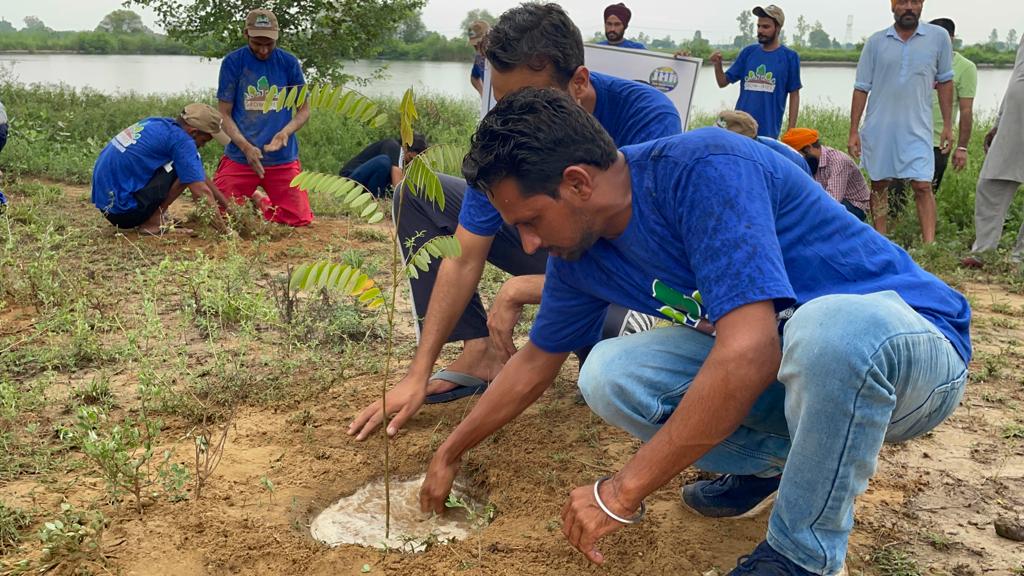
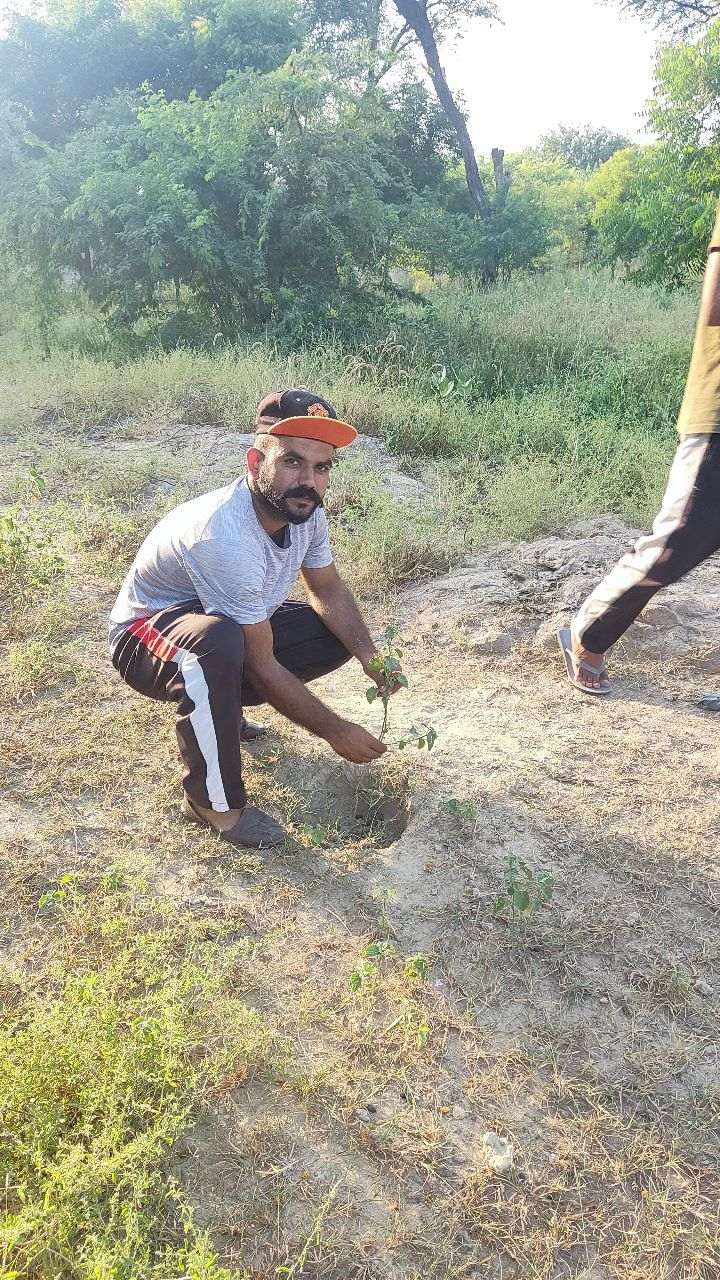
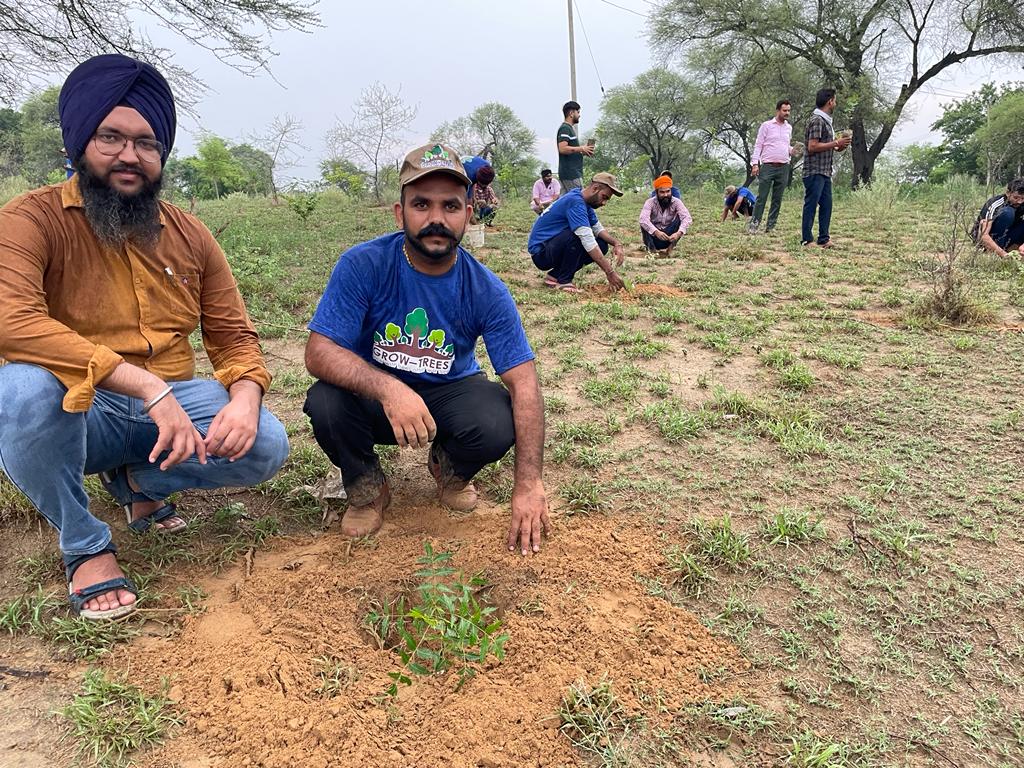
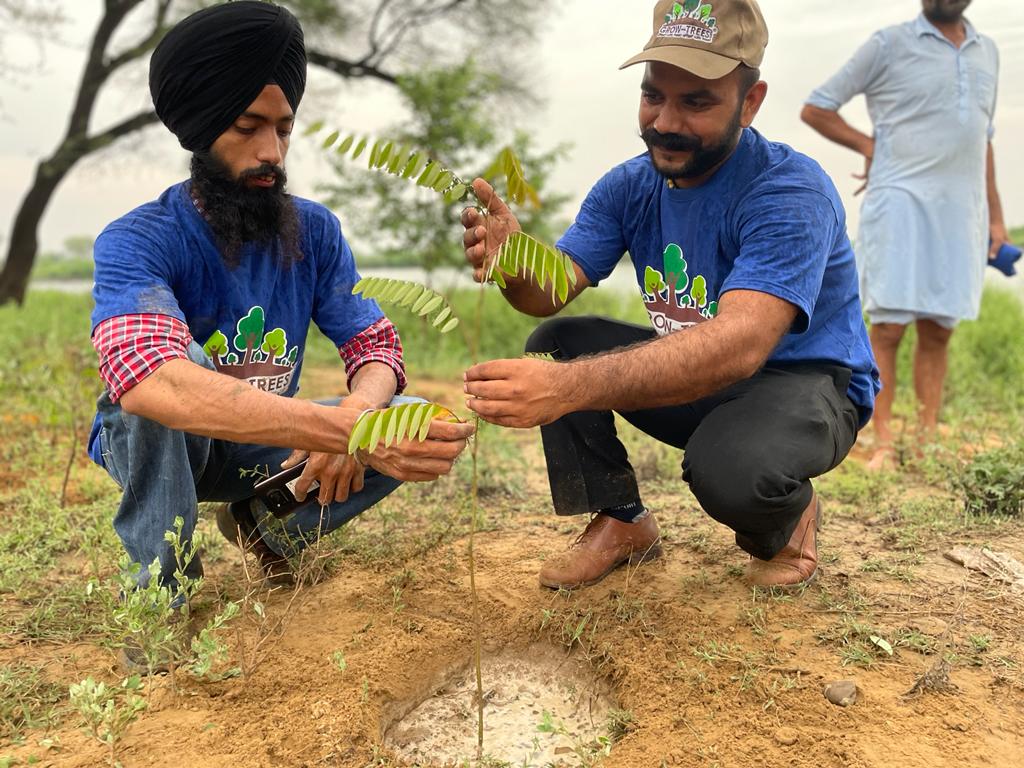
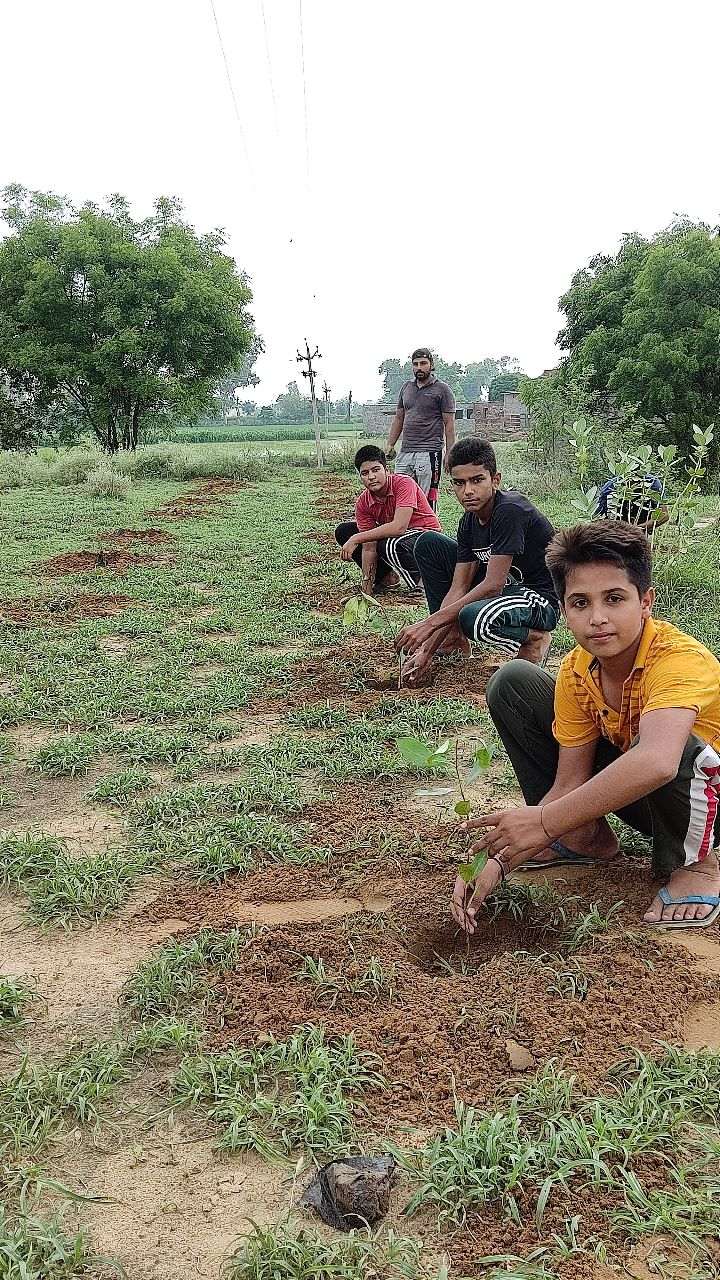
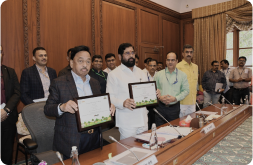
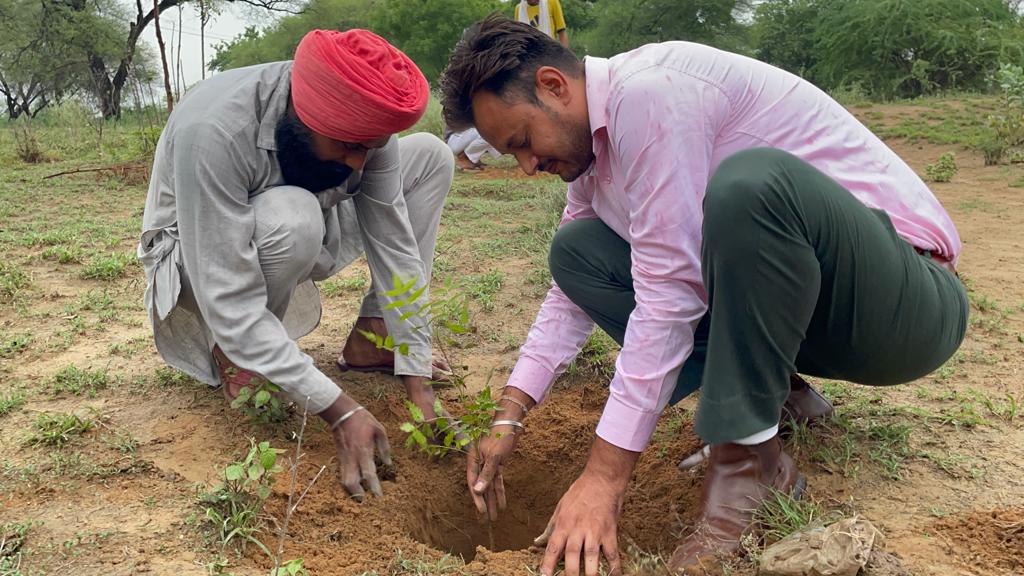
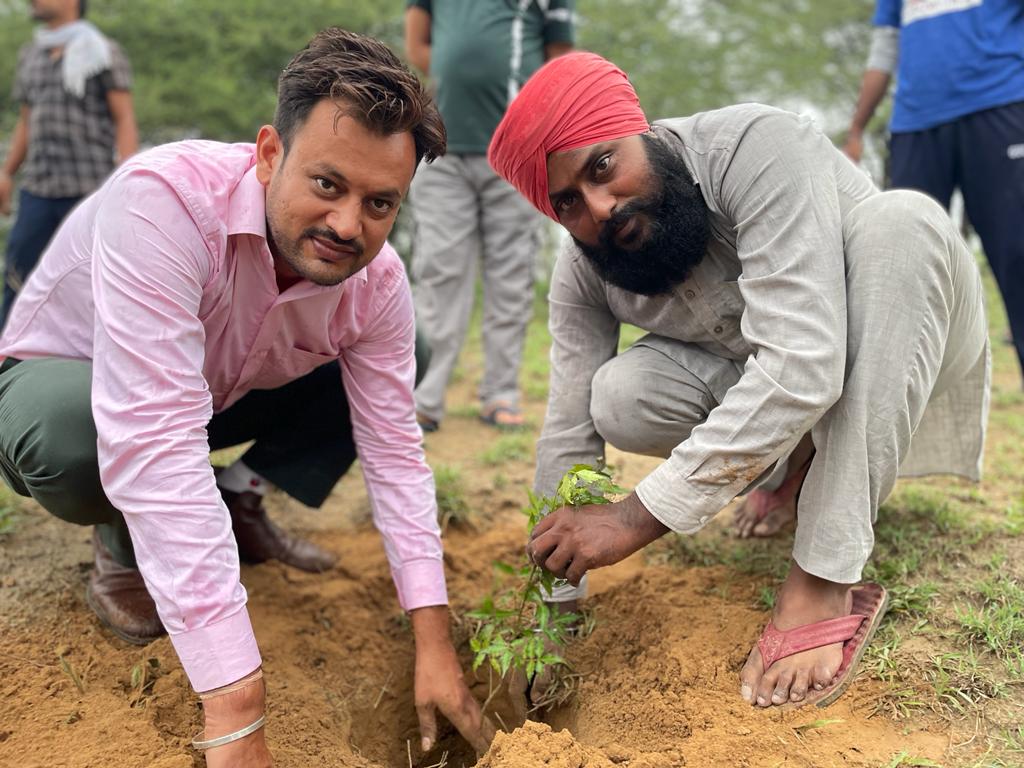
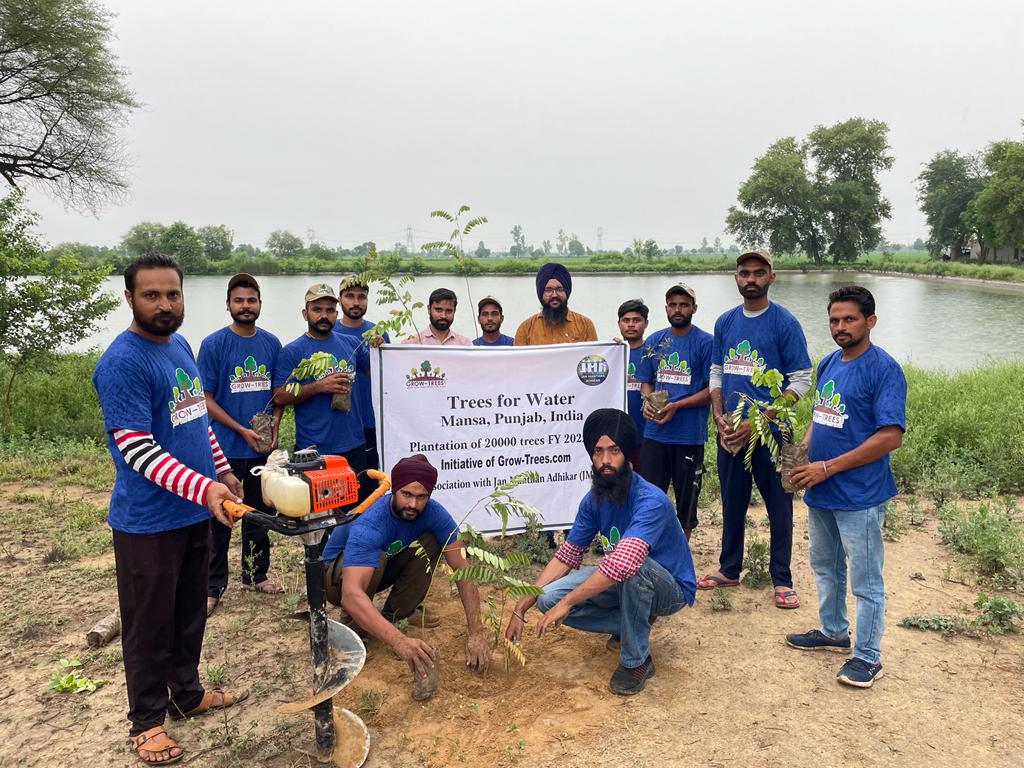
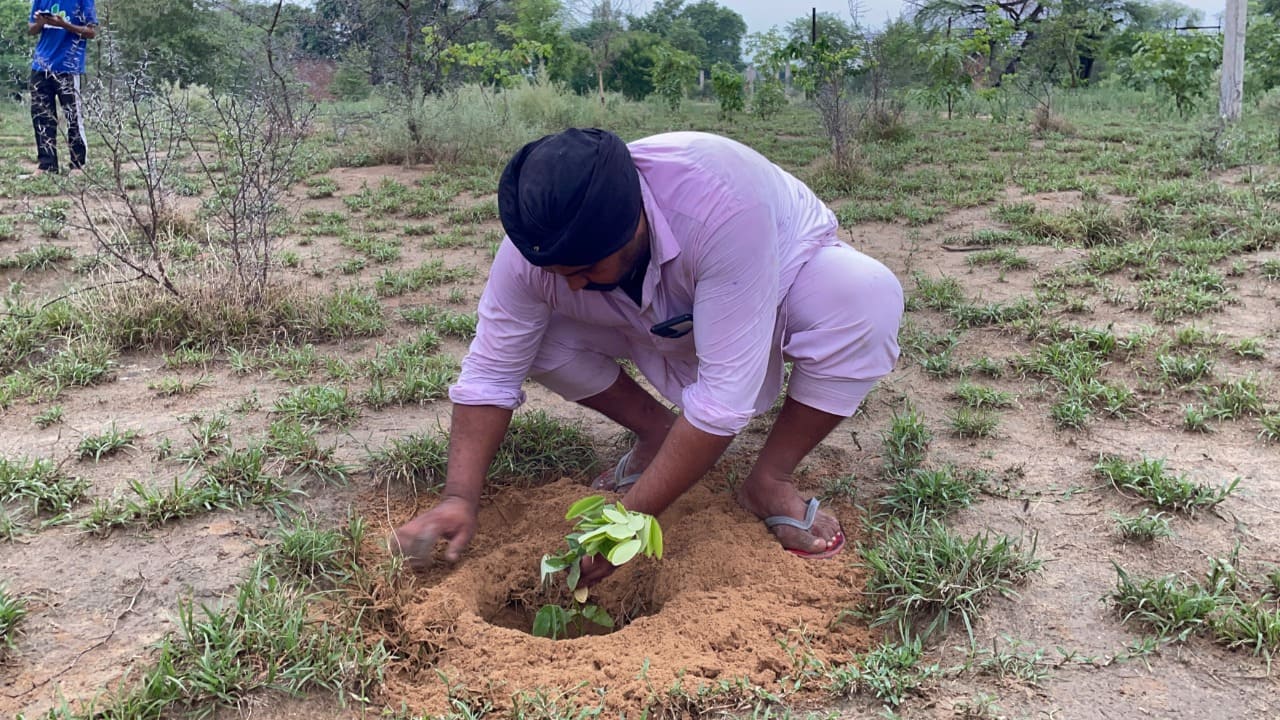
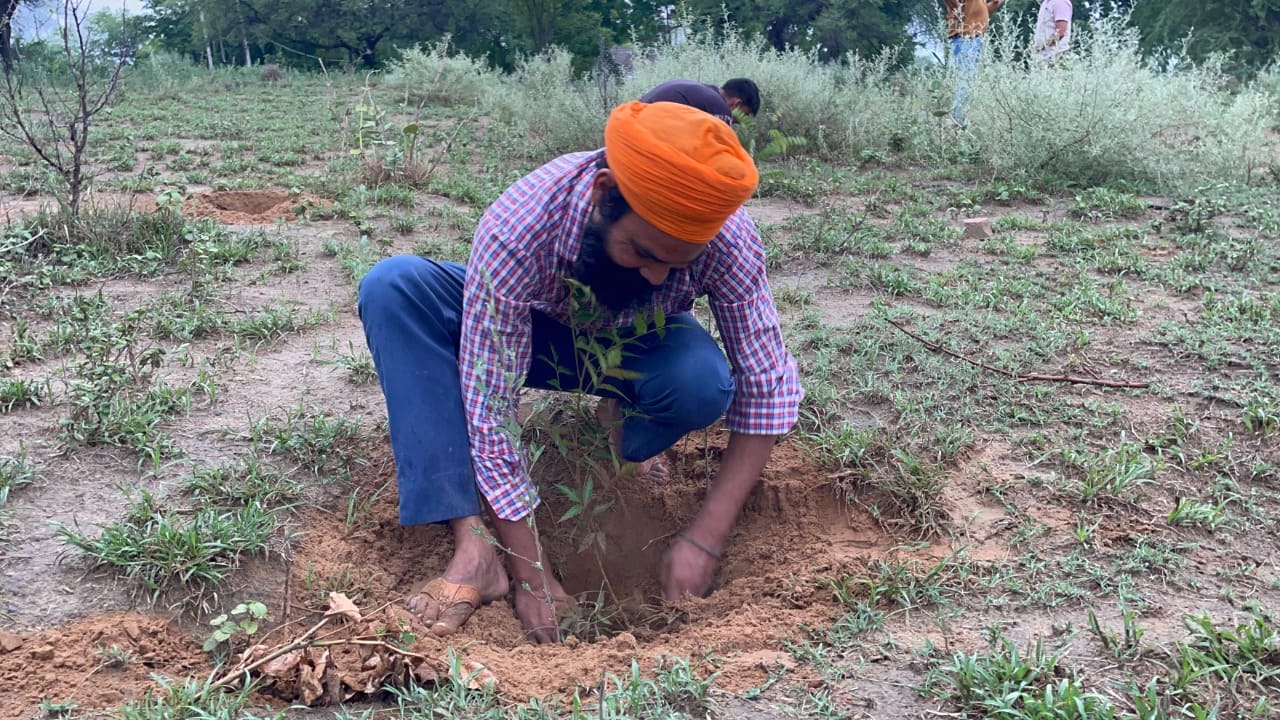
Project Target
0% Remaining
20,000
Trees Planted out of 20,000 Trees

Project Location:
The plantation project is implemented in Bareta and Mander blocks in Mansa district, Punjab, India.
Project Aim
Punjab has a yearly rainfall of about 650 mm, decreasing from over 800 mm in the 1980s. According to weather experts, the state has had not just below-average but also severely insufficient rainfall in the last two decades. The Indian Meteorological Department (IMD) stated that Punjab experienced 436.8 mm of rain from June 1 to September 30 in 2021, compared to the normal 467.3 mm required. This is 7% less rain than usual during the monsoon season which is a bad trend for a state like Punjab, where less rain means more water extracted from the ground for irrigation, despite the fact that the state's water table is already over-exploited in 84 percent of the state.
Similarly, rainfall in the Mansa district has been steadily diminishing that can lead to loss in soil moisture and land degradation. The district's average annual rainfall is 378.2 mm. There is a crucial water reservoir in the plantation region. It is a water reservoir that serves as a primary supply of water for the residents of Mansa's district as well as a main feeder to the forests. The reservoir helps to alleviate the region's arid climate.
The planting of trees will help to improve the region's overall ecological health and ecosystem services. The trees will contribute to the reduction of flood threats due to irregular rainfall patterns, the improvement of the quality and quantity of groundwater, soil conservation, water table replenishment, oxygen production, and climate change mitigation. Planting trees will also help to improve the microclimate in this region.
The forest cover of Punjab has decreased from 1592 square kilometres in 2019 to 1138 square kilometres in 2021. According to research, districts of Amritsar, Barnala, Gurdaspur, Hoshiarpur, Mansa, Moga, Patiala, Rupnagar, SAS Nagar, and SBS Nagar have observed a considerable decline in forest cover in the last two years. Punjab, in particular, has the dubious reputation of having the lowest forest cover in the country.
Reforestation is a critical component of addressing this problem. Planting trees would help in recovering degraded forest sections and help local communities improve their quality of life and boost their self-sufficiency. Trees will help to improve air quality and the overall ecosystem. They will help to compensate for the greenhouse effect by functioning as carbon sinks, sequestering atmospheric carbon every year as the trees reach maturity.
Mansa is regarded as one of Punjab's most educationally backward districts. The College Population Index (CPI) is 2.4, according to the Educational Backward District's rating. In a list of districts, Mansa is placed 15th in terms of rural backwardness. As a result of tree planting, there will be employment generation for the marginalized communities in this region and the living situations of those who rely on forest resources will improve.
The planting of trees in the Mansa area will help to increase the forest cover. Trees will contribute to improved air quality and ecological benefits in general. When they reach maturity, they will help to mitigate the greenhouse impact by sequestering atmospheric carbon dioxide and acting as carbon sinks. Upon maturity, each tree can absorb approximately 20kg of CO2 per year which is considered globally as a conservative estimate for sequestration potential of trees.
Trees will help to remove particulate matter from the atmosphere, especially small particles that cause significant health hazards due to air pollution. These trees are intended to aid in the replenishment of groundwater by minimising topsoil erosion, lessening the force of storms, and reducing down water flow.
According to an article published by NDTV about the severity of Punjab's air pollution, "A report released by the Central Pollution Control Board in 2017 states that Punjab has a serious air pollution problem, with eight cities in the agrarian state ranking among the most polluted in India over a five-year period starting in 2010. The state government has taken a variety of steps to reduce air pollution, including encouraging tree planting." Furthermore, a variety of birds and animals will find food and refuge in these trees. By enhancing natural habitats, they will contribute to the preservation and enhancement of local biodiversity.
| Name of the Company | Number of Trees Planted | Fiscal Year |
| HDFC LIFE INSURANCE COMPANY LIMITED | 20,000 | 2023-24 |
Social Impact of Growing Trees
Community Engagement
Tree planting initiatives often involve local communities, which can lead to greater community cohesion.
Ecological Education
Provides opportunities for community members, especially children, about the importance of environmental sustainability.
Urban Beautification
Trees contribute to the aesthetic enhancement of urban areas, making cities more pleasant and liveable.
Climate Resilience
By improving green cover, tree planting helps make communities more resilient against climate impacts like heatwaves.
Employment Creation
Planting trees creates employment for local community members like planting and maintenance, administrative roles, and more long-term jobs in management.
Wildlife Habitat
Trees provide critical habitats for various species of wildlife. Enhancing tree cover helps preserve biodiversity, which can be an ecological boon for local communities
Copyrights @ 2025 All rights reserved by Pangea EcoNetAssets Pvt Ltd.